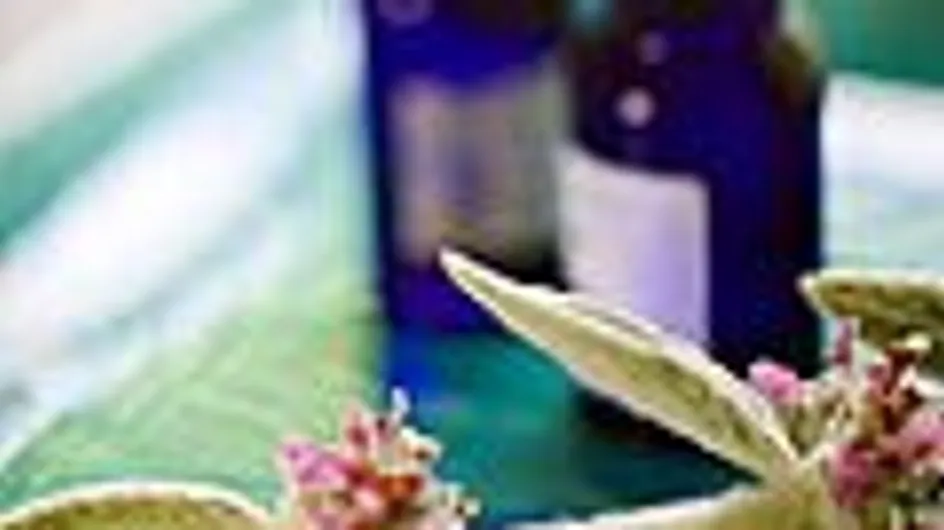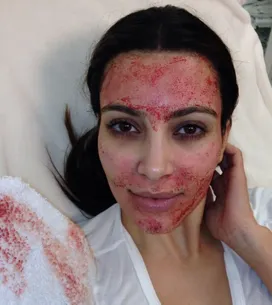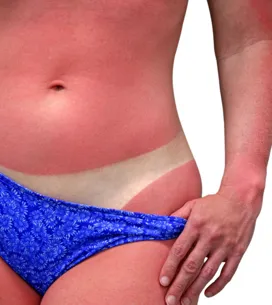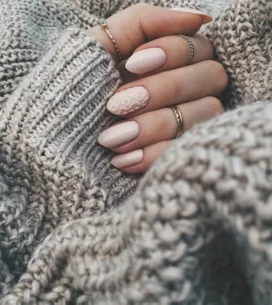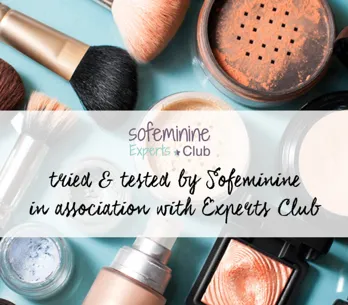What are essential oils?
Essential oils are scented volatile substances contained in plants.
They come from flowers, leaves, fruits, bark, seeds and roots.
They are extracted by a distillation steaming process.
The quantity of oil produced varies according to the plant; 40kg of flowers are needed to make 1 litre of lavender oil.
100kg of rose petals are required to make a 25ml bottle of rose oil. These strong concentrations explain the power of essential oils and the price, which is often pretty steep!
How do you use them?
Essential oils are used internally for therapeautic purposes. They act on viral infections, destroy bacteria, fungal infections and contagious toxins.
They are also used for external beautifying. They pass through the different layers of the skin easily, meeting the bloodstream in around 20 minutes, where they act deep down in the body.
They penetrate through the respiratory system, so inhaling oils can bring about a deep sense of well being. Essential oils are only used in small quantities and are always diluted.
In bath water, use 30 drops of essential oil, or on a specific area add them to vegetable oils.
User guide
Because of their potency, essential oils are not used pure on the skin (some oils can cause burning). They are diluted in vegetable oils such as almond, sesame and hazelnut oil.
These oils are rich in vitamins and unsaturated fatty acids. They hydrate and nourish the skin deeply and aid penetration of the beneficial ingredients into the epidermis and dermis.
Be careful. Do a test on your wrist before applying essential oils. Dilute a drop of your oil in 5 drops of vegetable oil, apply it to your wrist and place a bandage on top. Leave for several hours and check for any reaction. If you experience the slightest irritation, don't use the oil.
Action
Face: as skin boosters, they block some of the processes of cell degradation. A daily massage before moisturising boosts cell renewal and gives skin back its radiance and suppleness.
Body: essential oils can be massaged on certain parts of the body to treat specific problems, stimulate circulation and help prevent water retention that causes cellulite and heavy legs; or all the body to improve elasticity and firmness of the skin.
Hair: a good rub with an essential oil is soothing and stimulating for the scalp. It activates microcirculation, relaxes the scalp and restores your hair's energy.
Why are they good?
Essential oils have many virtues: they help combat stress and cellulite, tone, relax, purify and revitalise the body.
- Lavender is a disinfectant that balances dry and irritated skin
- Geranium tones and soothes sensitive skin
- Carrot is an anti-oxidant that revitalises dry and tired skin
- Cypress calms congested skin
- Patchouli heals and reduces acne
- Lemon has a tightening effect and purifies oily skin
- Camomille is anti-inflammatory and is suitable for all types of skin
- Rosemary tones and restores shine to dull hair
- Eucalyptus is antiseptic and disinfects the scalp
- Peppermint stimulates and gives back strength to the hair
- Sage has energetic properties and aids hair growth
- Oregano is anti-cellulite and helps you get a slimmer figure
- Juniper aids drainage and removes cellulite
- Orange relaxes the body
- Sandalwood tones and stimulates the body
Practical info
You can keep essential oils for 12 to 18 months as long as they are protected from light. Choose good quality oils that have not been altered by synthetic components nor cut with other oils or mineral essences.
Read the label well - look out for the words ‘cold pressed.’ Oils that are warm pressed lose their vitamins and fatty acids. Buy oils in specialist natural shops or pharmacies that specialise in natural products.
Some web sites also sell essential oils, but nothing beats professional advice!
Precautions
Keep them out of the reach of children. Follow the indicated doses exactly. If you get oil in your eye, don’t rinse with water: use the nearest product to hand that contains fat.
Warning
Some oils are photosensitive (bergamot, lemon and cedar), so you shouldn't expose yourself to the sun after applying them to avoid staining your skin.
Essential oils should not be used if you have allergies such as eczema, hives or allergic rhinitis, and don't use them if you have asthma (the smell alone can trigger an attack).
Pregnant women should consult their doctor before using essential oils.
